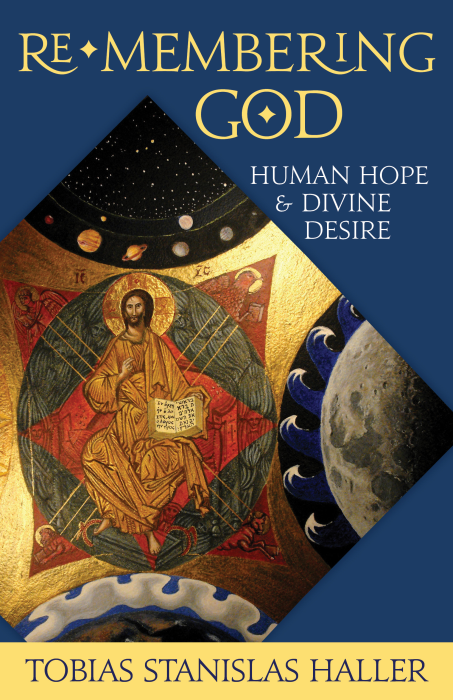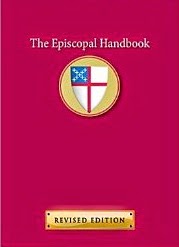Dueling Epistles
Much is being made of the publication of two letters from two primates of the Anglican Communion: the Archbishop of Canterbury and the Presiding Bishop of the Episcopal Church. Both of them are well worth reading and say important things from their different perspectives: the Archbishop properly speaking in the role and to the end for which he feels responsible: to preserve the unity of the Anglican Communion; the Presiding Bishop properly speaking for the historic and continuing independence of the Episcopal Church concerning its internal affairs, while remaining Anglican in the same way it has from the beginning. To vastly oversimplify, Rowan appears in the role of loving parent of unruly children instructed that they will have to stay in their rooms without TV until they can get along with the rest of the family. He is very even-handed in laying down what he clearly thinks is the law. Katherine’s response is a reminder and reassertion that this role-play is in itself an assumption of a power not granted in an entity not yet constructed.
So, in its own way, this epistolary exchange incarnates the larger debate on the nature of the Anglican Communion itself, and whether it should continue as a fellowship of autonomous churches or morph into a more tightly governed structure, such as that proposed by the draft Anglican Covenant.
Some commentators are engaging in a bit of revisionist history when they seek to portray in the foundation of the Episcopal Church a desire to serve as a branch or outpost of the Church of England, which indeed the colonial churches had been, answerable to the Bishop of London, prior to the War of Independence. There may well indeed have been a few individuals who thought that way at that time. However, the bulk of the evidence shows that the emerging Episcopal Church of the late 18th century wanted nothing from England but bishops — that is, they wanted bishops (to remain Episcopal) but knew the church would not be English — and indeed if they were unable to obtain the episcopate from England they were happy to go to other quarters. Indeed, it is ironic that the principled Tory Seabury ended up going to Scotland, while the Patriot White held out for England, pressing other Patriots such as Jay and Adams in that cause. But however bishops were obtained, the documentary evidence shows that it was bishops that were wanted and not any kind of continued governance from England — a cordial relationship, yes; but governance, no.
On the contrary, great pains were taken in the new land to militate against any such divided loyalty. As the preface to the 1785 Constitution of the Episcopal Church stated as its first “Whereas” — “in the course of Divine Providence, the Protestant Episcopal Church in the United States of America is become independent of all foreign authority, civil and ecclesiastical...” This language was echoed in the Preface to the first American Book of Common Prayer in 1789.
Nor were the English particularly interested in ecclesiastical entanglement with this new independent church in America, playing what is best described as an affectionately avuncular role. In witness of this, the Act of Parliament permitting Canterbury the ordination of American bishops contains this important proviso:
Provided also, and be it hereby declared, that no person or persons consecrated to the office of a bishop in the manner aforesaid, nor any person or persons deriving their consecration from or under any bishop so consecrated, nor any person or persons admitted to the order of deacon or priest by any bishop or bishops so consecrated, or by the successor or successors of any bishop or bishops so consecrated, shall be thereby enabled to exercise his or their respective office or offices within his Majesty's dominions.
Hardly a “continuation” of the Church of England, and rather a blow even to the notion of communion itself — usually understood as involving recognition and interchangeability of ministers — or to the ahistorical notion that a “bishop is a bishop for the whole church.” In fact, this proviso echos the language of the ancient canons that required bishops to confine themselves to their own sees and not meddle about extramurally.
But back to the dueling epistles: some, such as Diana Butler Bass, see this as a turning point — something’s got to give, and the Communion will never be the same. She may well be right, and I think that is unfortunate. I wish Rowan had exercised the wisdom of a truly loving parent, when from his perspective the children started acting up, to let them be, rather than to formalize their quarrels — and his Pentecost letter continues on that road of mildly vexed and punitive paternalism. It may have effect: It is so much easier to have consensus when those who disagree are removed from the conversation; but then, as with Caroline’s “ball without dancing” — it will not be near so much a conversation. Or a Communion.
Tobias Stanislas Haller








8 comments:
Much, I think, hangs on just how Canterbury interprets his own emphasized word, "formally." Uganda and Kenya "formally" intervened across national/provincial boundaries. Is that "formally" undone when they turn jurisdiction over to ACNA? The Church of England has found a means "formally" to accommodate civil unions of clergy. Is that somehow less problematic than the fact that they have not "formally" affirmed marriage equality per se, or have not consecrated a bishop "formally" partnered? (And, as both Bishop Jefferts Schori and Archbishop Hiltz have alluded, that more such partnerships are blessed in England than almost anywhere else, but not "formally?")
In fact we won't know how Canterbury intends to interpret "formally" until there are invitations to send or not send. In the mean time, his letter seems to me "formal" in a way I don't think he intended: all form over substance.
I wish Rowan had exercised the wisdom of a truly loving parent, when from his perspective the children started acting up, to let them be, rather than to formalize their quarrels — and his Pentecost letter continues on that road of mildly vexed and punitive paternalism.
Yes, this highlights what I, too, picked up in our Presiding Bishop's response: a gracious assertion that we are adults, not children.
Even assuming the ABC in a parental role, the only way to shepherd children to adulthood (which is an essential task of parenting) is to introduce them to adult responsibilities. One of those is learning how to settle their own differences!
"I should like balls infinitely better,'' she replied, "if they were carried on in a different manner; but there is something insufferably tedious in the usual process of such a meeting. It would surely be much more rational if conversation instead of dancing made the order of the day."
"Much more rational, my dear Caroline, I dare say, but it would not be near so much like a ball."
Tobias, the temptation to give the entire quote was irresistible.
Although, there is much that is tedious in being part of the Anglican Communion, I'd regret to give it up. I'd have liked to see more of the "loving" aspect of parenthood shown by the Archbishop, but I suppose it doesn't really matter, because he is not our daddy.
Having the two letters appear within such a brief period of time, was an extraordinary experience. The temptation to compare and contrast is irresistible (again!).
Another irresistible (again!) temptation that plagues me is to attempt to put myself inside another person's head to try to figure out how they'd feel or what they'd think about a certain matter. Had I been inside Rowan's head, once I'd read Katharine's letter, I'd have been somewhat ashamed of my own missive. However, I expect that I'd be quite off the mark at judging what the ABC thinks or feels.
"Dueling Epistles" is the perfect title for the post. Will you sell the movie rights?
Thanks for the comments. Blogging (and commenting) will be "lite" the next few days as I am heading off to West Virginia to lead the clergy conference; topic: Hermeneutics.
Marshall, you touch on an important point: the whole issue revolves around form and formalism -- especially in the drive to "formalize" the Anglican Communion, when it has actually worked fairly well informally!
R, spot on: the PB is not letting her "child" get hooked (to use the old transactional analysis language -- which may work better for institutional than personal psychology.)
GM, yes that is a delicious quote, and the one I was alluding to. I do hope Rowan finds Katharine's letter sobering. Thanks for your kind words....
We know, or at least we think we know, a great deal about leadership. Were Rowan Williams not a great scholar and reputable theologian, we would dismiss him (some do) as thoroughly clueless regarding the dynamics of leadership. Aside from all the various and apt analyses of Anglican tribulation as cultural clashes and theological divisions, creative leadership would recognize the importance of giving to Anglicans the world over the hard work of struggling through differences. Instead, the Archbishop supposes that either through chastisement or appeasement he will bring his Communion to heel.
The tragedy is on one level the continuing construction of an ecclesiology and an ethics that ignores the arbitrariness which dismisses homosexuality as unnatural even though it pops up consistently in much of the Creator's creation. On another level, the tragedy is the persistence of a fantasy that somehow a centralized authority will be the very style of leadership that will create effective community. Dictating compliance is somewhat at odds with the very freedom that Christians suppose God grants creatures.
And even if chastisement were to work and the unruly American children were to come back to the table to gather crumbs with their tails between their legs, what would the victory be? Hardly a great advertisement for the power of Jesus Christ. Only a testament that empire once again wields power over the powerless: a Phyrric victory if ever there were one.
Frank Dunn
Washington, DC
Well, it appears that we now have an answer, or at least a partial answer, to the question of what "formally" means in the letter from Canon Kearon. How sad! And how hollow!
May I coin a verb to describe the effect on The Episcopal Church of the latest ACO screed?
"Wet noodled."
Apparently, Diana Butler Bass was right.
Post a Comment